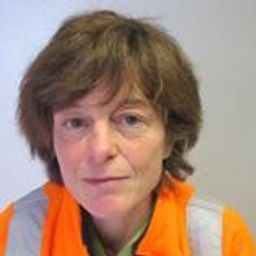
Sessions auxquelles Nadine Béague participe
Mardi 7 Juin, 2016
Sessions auxquelles Nadine Béague assiste
Vendredi 3 Juin, 2016
Find out more about all the eras that shaped Montréal with this interesting walking tour, from the foundation of Fort Ville-Marie in 1642 to today’s modern city. The historic heart of the city and its adjacent Old Port will help illuminate the story of one of the greatest cities in the Americas. Your guide will lead you through a maze of narrow streets where you can find a multitude of historic buildings. Explore the birthplace of our metropolis and experience a special voyage back in time! ...
Samedi 4 Juin, 2016
Dimanche 5 Juin, 2016
In English and French The two Inuit artists Nina Segalowitz and Taqralik Partridge are offering us an initiation to katajjaniq, this thousand years old autochthonous expression of overtone singing which consists of an alternate dialogue of inhaled and exhaled guttural and vocal sounds. Throat singing is practiced just like a game: two women facing and challenging one another until one of them either laughs or runs out of breath. (Meeting point: DS Registration table) _...
Heritagization (the various means by which cultural features—either material or immaterial—are turned into a people’s heritage) has recently become, for Amerindian groups, a major means to gain visibility and recognition in the new Latin American social and political landscapes where cultural diversity is endowed with an increasingly critical role. Different forms of cultural heritagization have largely been studied elsewhere, particularly in North America. However, they are far less known in...
Lundi 6 Juin, 2016
In addressing the theme of this conference, we argue that archaeology, above and beyond the traditional goals of research and post-excavation analyses, may contribute to economic development, education and the creation of identities and communities. Our session "What does Heritage Change? Case Studies in Archaeology," is divided into two themes starting with archaeological practice through its legislation and management. Contract or commercial archaeology increasingly comprises the vast major...
Mardi 7 Juin, 2016
Mercredi 8 Juin, 2016
||| Les Mohawks constituent la nation amérindienne la plus nombreuse parmi les dix différentes nations que compte le Québec. La nation mohawk compte près de 17 350 habitants. Il y en a 2 700 qui vivent hors réserve et les autres sont dispersés dans trois grandes communautés que sont : Kanesatake, Akwasasne et Kahnawà :ke. Située à proximité de Montréal, sur la rive sud du fleuve Saint-Laurent, la communauté de Kahnawà :ke compte près de 7 300 habitants. Elle est parmi les première...